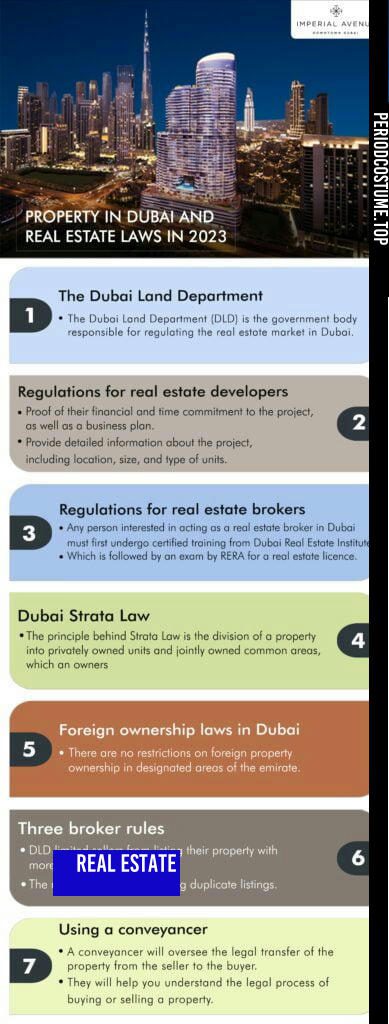The Basics of Real Estate Law in Dubai
Welcome to a brief overview of the basics of real estate law in Dubai! Whether you are a resident, investor, or simply curious about the laws that govern property transactions in this bustling city, understanding the legal framework is essential. From property ownership rights to rental agreements and dispute resolution mechanisms, real estate law plays a crucial role in shaping the Dubai property market. Let’s delve into some key concepts to help you navigate the landscape of real estate law in Dubai.
Overview of Real Estate Law in Dubai
Real Estate Law in Dubai is a comprehensive set of regulations that govern the buying, selling, leasing, and renting of properties in the emirate. These laws aim to protect the rights of both landlords and tenants while ensuring fair and transparent transactions in the real estate market. The legal framework for real estate in Dubai is primarily derived from the UAE Civil Code, Federal Law No. 5 of 1985 concerning Civil Transactions, and various decrees and regulations issued by the Dubai government.
One of the key aspects of Real Estate Law in Dubai is the requirement for all property transactions to be registered with the Dubai Land Department (DLD). This registration process helps ensure that all parties involved in the transaction are protected and that the rights of both buyers and sellers are upheld. The DLD plays a crucial role in monitoring and regulating the real estate market in Dubai, issuing licenses to real estate agents, and overseeing property developments to ensure compliance with regulations.
In addition to registration requirements, Real Estate Law in Dubai also addresses issues related to property ownership, tenancy agreements, and dispute resolution. For example, the law stipulates specific rights and responsibilities for both landlords and tenants, such as the maintenance of properties, payment of rent, and eviction procedures. In the case of disputes between parties, the law provides mechanisms for resolving conflicts through mediation, arbitration, or legal action.
Furthermore, Real Estate Law in Dubai places a strong emphasis on investor protection and transparency in the real estate market. The government has introduced regulations such as the Escrow Law, which requires developers to deposit project funds into a secure account managed by a financial institution. This measure helps safeguard investors’ funds and prevents mismanagement or fraud in property developments.
Overall, Real Estate Law in Dubai is designed to create a conducive and secure environment for real estate transactions, promoting confidence and stability in the property market. By ensuring compliance with regulations, protecting the rights of stakeholders, and offering avenues for dispute resolution, the legal framework in Dubai contributes to the emirate’s reputation as a safe and attractive destination for property investment.
Legal Rights and Responsibilities of Property Owners
When it comes to owning a property in Dubai, there are certain legal rights and responsibilities that property owners should be aware of. Understanding these rights and responsibilities is essential for maintaining a smooth and harmonious relationship with tenants, neighbors, and the community at large.
Property owners in Dubai have the right to use their property as they see fit, within the limits of local zoning laws and regulations. This includes the right to lease or rent out the property, make improvements or alterations to the property, and sell or transfer ownership of the property. However, it is important for property owners to abide by all relevant laws and regulations when exercising these rights, to avoid running into legal trouble.
Property owners also have a responsibility to maintain their property in a safe and habitable condition. This includes ensuring that the property meets all building codes and safety regulations, keeping the property clean and well-maintained, and addressing any issues or repairs in a timely manner. Failure to maintain the property can lead to legal consequences and potential liability for any accidents or injuries that occur as a result.
Another important responsibility of property owners in Dubai is to respect the rights of their tenants. This includes providing tenants with a written lease agreement that clearly outlines the terms and conditions of the tenancy, respecting the tenant’s right to privacy, and making necessary repairs or maintenance to the property in a timely manner. Property owners should also be aware of their obligations under the Dubai Tenancy Law, which governs the relationship between landlords and tenants in the emirate.
Property owners in Dubai also have a responsibility to be good neighbors and members of the community. This includes respecting the rights and privacy of neighboring properties, complying with any homeowners’ association rules or regulations, and participating in community events or initiatives. By being a responsible property owner and community member, you can help maintain property values and ensure a positive living environment for yourself and your neighbors.
Understanding Lease Agreements in Dubai
When renting a property in Dubai, it is crucial to have a clear understanding of the lease agreement. A lease agreement is a legal contract between the landlord and the tenant that outlines the terms and conditions of the rental arrangement. It is important to carefully read and comprehend all the clauses in the lease agreement before signing it, as it is a legally binding document that governs the landlord-tenant relationship.
The lease agreement in Dubai typically includes details such as the duration of the lease, rental amount, payment schedule, security deposit amount, maintenance responsibilities, and any restrictions on the use of the property. It is essential for both parties to adhere to the terms of the lease agreement to avoid any disputes or legal issues in the future.
One important aspect to consider in a lease agreement in Dubai is the notice period for terminating the lease. In Dubai, the standard notice period for terminating a lease is 12 months, although this can vary depending on the terms of the agreement. It is important for tenants to be aware of the notice period and make sure to inform the landlord in advance if they plan to vacate the property.
Another key element to understand in a lease agreement in Dubai is the renewal terms. Some lease agreements include automatic renewal clauses, which means that the lease will be renewed for another term unless either party gives notice to terminate it. Tenants should carefully review the renewal terms and make sure to comply with any requirements for giving notice if they do not wish to renew the lease.
Additionally, tenants should be aware of their rights and responsibilities under the lease agreement. This includes complying with the rules and regulations of the building or community where the property is located, paying the rent on time, and maintaining the property in good condition. Landlords also have certain obligations, such as ensuring that the property is safe and habitable, making necessary repairs, and returning the security deposit at the end of the tenancy.
In conclusion, understanding lease agreements in Dubai is essential for both landlords and tenants to ensure a smooth and mutually beneficial rental experience. By carefully reviewing and comprehending the terms of the lease agreement, both parties can avoid misunderstandings and legal issues that may arise during the tenancy. It is advisable to seek legal advice if there are any ambiguities or concerns regarding the lease agreement to protect your rights and interests.
Legal Procedures for Buying and Selling Property in Dubai
When it comes to buying and selling property in Dubai, there are several legal procedures that must be followed to ensure a smooth transaction. Both buyers and sellers need to be aware of these processes to protect their interests and avoid any potential pitfalls along the way.
1. **Verification of Property**: Before any transaction takes place, it is crucial to verify the authenticity of the property in question. This includes checking the title deed, ownership status, and any other relevant documents to ensure that the seller has the legal right to sell the property.
2. **Sales Agreement**: Once the property has been verified, the next step is to draft a sales agreement. This document outlines the terms and conditions of the sale, including the agreed-upon price, payment schedule, and any other relevant details. It is essential for both parties to review the sales agreement carefully and seek legal advice if needed.
3. **Transfer of Ownership**: In Dubai, property ownership is transferred through a process known as transfer of title deed. This involves submitting the necessary documents to the Dubai Land Department, paying the transfer fee, and updating the land registry with the new owner’s details. It is essential to ensure that all legal requirements are met to avoid any delays or complications in the transfer process.
4. **Registration of Property**: After the transfer of ownership is complete, the final step is to register the property with the Dubai Land Department. This involves submitting the title deed and relevant documents to the land registry, paying the registration fee, and obtaining the updated title deed in the new owner’s name. Once the property is registered, the new owner will have legal proof of ownership and can enjoy all the rights and responsibilities that come with it.
Overall, buying and selling property in Dubai involves several legal procedures that must be followed to ensure a successful transaction. By verifying the property, drafting a sales agreement, transferring ownership, and registering the property, both buyers and sellers can protect their interests and complete the transaction smoothly. It is important to seek legal advice and guidance throughout the process to navigate any potential challenges and ensure a successful outcome.
Impact of Dubai Real Estate Laws on Foreign Investors
Investing in real estate in Dubai can be a lucrative opportunity for foreign investors looking to diversify their portfolio. However, it is crucial to understand the impact of Dubai’s real estate laws on foreign investors before making any investment decisions. Dubai has implemented several regulations to protect the interests of both investors and developers in the real estate sector.
One of the key laws governing real estate transactions in Dubai is Law No. 3 of 2006, also known as the Dubai Land Department Law. This law establishes the legal framework for property ownership, registration, and transfer in Dubai. It also outlines the rights and responsibilities of property owners, developers, and real estate agents operating in the emirate.
Foreign investors looking to purchase property in Dubai must be aware of the restrictions and limitations imposed by the Dubai government. For example, non-GCC nationals are generally not allowed to own land in certain areas designated for UAE nationals only. Additionally, foreign investors may be subject to restrictions on the type and size of properties they can purchase.
Furthermore, foreign investors must also consider the implications of inheritance laws in Dubai. In the event of the property owner’s death, the distribution of the assets may be governed by Sharia law, which could affect the rights of heirs, including foreign investors. It is advisable for foreign investors to seek legal advice to ensure their assets are protected and distributed according to their wishes.
Another important aspect for foreign investors to consider is the tax implications of owning property in Dubai. While Dubai does not currently impose property taxes on residential properties, foreign investors may still be subject to other taxes such as transfer fees, registration fees, and income tax on rental income. It is essential for foreign investors to understand their tax obligations and seek professional advice to maximize their returns and avoid any potential legal issues.
Lastly, foreign investors must also be aware of the process and requirements for obtaining residency visas in Dubai. Owning property in Dubai may qualify foreign investors for long-term residency visas, which offer various benefits such as access to healthcare, education, and employment opportunities. However, there are specific criteria and conditions that must be met to qualify for a residency visa, and foreign investors should familiarize themselves with the application process to ensure compliance with Dubai’s immigration laws.
In conclusion, while Dubai offers attractive opportunities for foreign investors in the real estate sector, it is essential for investors to understand the impact of Dubai’s real estate laws on their investments. By staying informed about the legal requirements, restrictions, tax implications, and residency opportunities, foreign investors can make informed decisions and navigate the real estate market in Dubai successfully.







